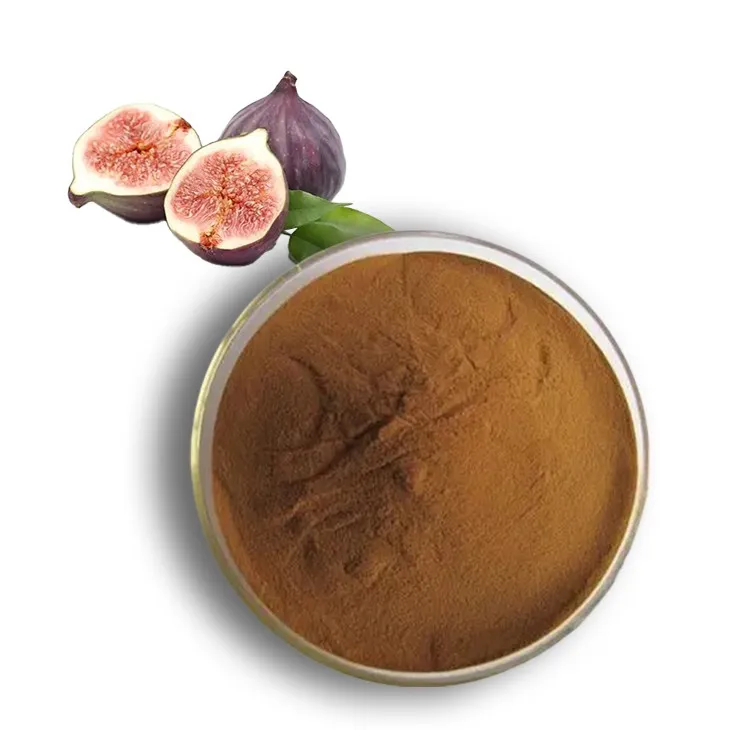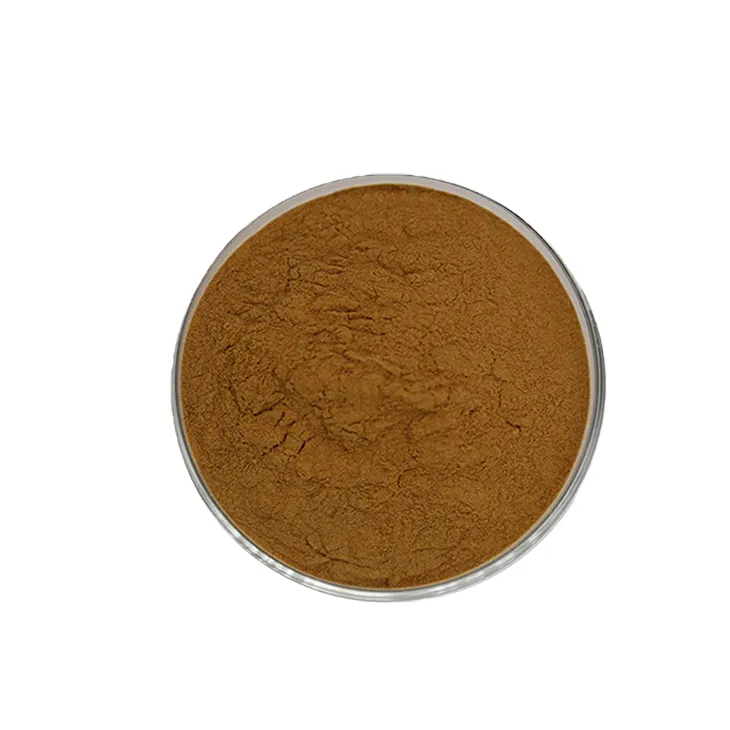- 0086-571-85302990
- sales@greenskybio.com
Active ingredients in fig extracts.
2024-11-30

Phenolic Compounds
Fig Extract is replete with phenolic compounds, which are among the most prominent active ingredients. Phenolic substances in figs include flavonoids and phenolic acids. These components are highly regarded for their antioxidant capabilities. Antioxidants play a vital role in the human body as they counteract the harmful effects of free radicals.
Free radicals are unstable molecules that can cause oxidative stress in the body. Oxidative stress has been linked to a plethora of diseases. Flavonoids and phenolic acids in Fig Extracts are effective in scavenging free radicals, thereby reducing oxidative stress. This reduction in oxidative stress can potentially prevent various diseases associated with oxidative damage.
One of the significant diseases that may be prevented is cardiovascular diseases. The oxidative stress on blood vessels and the heart can be mitigated by the antioxidant action of phenolic compounds in Fig Extracts. Another area of concern is certain types of cancers. By reducing oxidative stress, these phenolic compounds may also play a role in cancer prevention.

Ficin Enzyme
The ficin enzyme is another important active component in fig extracts. Ficin has proteolytic activity, which means it can break down proteins. This property makes it highly useful in different industries.
Food Processing
In the food processing industry, ficin is used for tenderizing meat. Meat contains proteins, and ficin can act on these proteins to make the meat more tender. This improves the texture and palatability of the meat products. It is a natural alternative to some of the chemical tenderizers that are currently in use.
Pharmaceutical Industry
In the pharmaceutical industry, ficin has potential applications in enzyme - based therapies. Enzyme - based therapies are an emerging area of treatment where enzymes are used to target specific biological processes in the body. Ficin's proteolytic activity may be harnessed to develop new treatments for various diseases.

Minerals and Vitamins
Figs also contain minerals and vitamins, which contribute to the overall bioactivity of fig extracts.
Minerals
One of the important minerals in figs is potassium. Potassium is crucial for maintaining proper cell function. It helps in the regulation of cell membrane potential, which is essential for the normal functioning of nerve cells, muscle cells, and other cell types. Additionally, potassium plays a significant role in fluid balance in the body. Imbalances in potassium levels can lead to various health problems, such as muscle cramps, heart arrhythmias, etc.
Vitamins
Figs also contain vitamins, such as vitamin C. Vitamin C is well - known for its antioxidant properties. It can work in tandem with the phenolic compounds in fig extracts to enhance the overall antioxidant capacity. Vitamin C also plays other important roles in the body, such as in collagen synthesis, which is important for maintaining healthy skin, bones, and connective tissues.

Conclusion
In conclusion, fig extracts are rich in a variety of active ingredients. The phenolic compounds, ficin enzyme, minerals, and vitamins all contribute to the potential health benefits and industrial applications of fig extracts. The antioxidant properties of phenolic compounds and vitamin C are important for reducing oxidative stress and preventing diseases. Ficin's proteolytic activity has practical applications in food processing and the pharmaceutical industry. And the minerals like potassium are essential for maintaining normal physiological functions. Further research on fig extracts may uncover more potential uses and benefits of these active ingredients.
FAQ:
What are the main active ingredients in fig extracts?
The main active ingredients in fig extracts are phenolic compounds (including flavonoids and phenolic acids), ficin enzyme, minerals (such as potassium), and vitamins (such as vitamin C).
How do phenolic compounds in fig extracts contribute to health?
Phenolic compounds in fig extracts are known for their antioxidant properties. They can scavenge free radicals in the body, reducing oxidative stress and potentially preventing diseases related to oxidative damage like cardiovascular diseases and certain cancers.
What is the role of ficin enzyme in fig extracts?
Ficin enzyme in fig extracts has proteolytic activity. It is useful in industrial applications like meat tenderizing in food processing and has potential in enzyme - based therapies in the pharmaceutical industry.
How do minerals in fig extracts affect their bioactivity?
Minerals in fig extracts, like potassium, play a crucial role in maintaining proper cell function and fluid balance, which contributes to the overall bioactivity of the extract.
What is the significance of vitamins in fig extracts?
Vitamins in fig extracts, such as vitamin C, add to the antioxidant capabilities of the extract, thus contributing to its overall bioactivity.
Related literature
- The Chemical Composition and Bioactive Compounds of Fig (Ficus carica L.)"
- "Bioactive Components in Fig Extracts: A Comprehensive Review"
- "Antioxidant Properties of Fig Extracts: Role of Active Ingredients"
- ▶ Hesperidin
- ▶ citrus bioflavonoids
- ▶ plant extract
- ▶ lycopene
- ▶ Diosmin
- ▶ Grape seed extract
- ▶ Sea buckthorn Juice Powder
- ▶ Beetroot powder
- ▶ Hops Extract
- ▶ Artichoke Extract
- ▶ Reishi mushroom extract
- ▶ Astaxanthin
- ▶ Green Tea Extract
- ▶ Curcumin Extract
- ▶ Horse Chestnut Extract
- ▶ Other Problems
- ▶ Boswellia Serrata Extract
- ▶ Resveratrol Extract
- ▶ Marigold Extract
- ▶ Grape Leaf Extract
- ▶ blog3
- ▶ blog4
-
The best bladder horn extract in nature.
2024-11-30
-
A jujube extract manufacturer from China.
2024-11-30
-
Chinese Nettle Root Extract Powder Factory.
2024-11-30
-
Organic Yellow Pine Extract Powder Supplier
2024-11-30
-
Standard - process Hesperidin.
2024-11-30
-
Black Rice Extract
2024-11-30
-
Soy Extract
2024-11-30
-
Pomegranate Extract
2024-11-30
-
Saponin Extract
2024-11-30
-
Cranberry Extract
2024-11-30
-
Hawthorn powder
2024-11-30
-
Nettle leaf extract
2024-11-30
-
Tamarind extract powder
2024-11-30
-
Peppermint Extract Powder
2024-11-30
-
Curcumin
2024-11-30





















